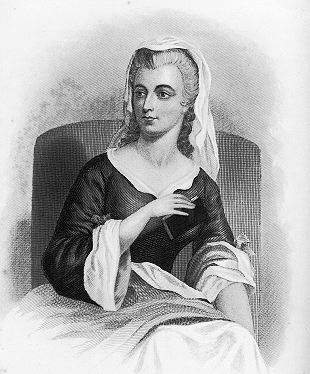- While her husband was absent
in London in 1711, attending Convocation, Mrs. Wesley adopted the practice
of reading in her family, and instructing them. One of the servants
told his parents and they wished to come. These told others, and they
came, till the congregations amounted to forty, and increased till they
were over two hundred, and the parsonage could not contain all that
came. She read to them the best and most awakening sermons she could
find in the library, talked to the people freely and affectionately.
There meetings were held "because she thought the end of the institution
of the Sabbath was not fully answered by attending Church unless the
intermediate spaces of time were filled up by other acts of devotion."
- Inman, the Curate, was a
very stupid and narrow man. He became jealous because her audience was
larger than his, and he wrote to Mr. Wesley, complaining that his wife,
in his absence, had turned the parsonage into a conventicle; that the
Church was likely to be scandalized by such irregular proceedings; and
that they ought to be tolerated no longer.
- Mr. Wesley wrote to his
wife that she should get some one else to read the sermons. She replied
that there was not a man there who could read a sermon without spoiling
it. Inman, the Curate, still complained, and the Rector wrote to Mrs.
Wesley that the meetings should be discontinued. Mrs. Wesley answered
him by showing what good the meetings had done, and that none were opposed
to them but Mr Inman and one other.
- She then concludes with
these wonderful sentences: "If after all this you think fit to dissolve
this assembly do not tell me you desire me to do it, for that will not
satisfy my conscience; but send your positive command in such full and
express terms as may absolve me from all guilt and punishment for neglecting
this opportunity for doing good when you and I shall appear before the
great and awful tribunal of our Lord Jesus Christ."
- Were not these the first
Methodist meetings held by the Wesleys? Can we wonder that
Isaac Taylor says that "the mother of the Wesleys was the mother of
Methodism;" and that in her characteristic letter, when she said, "'Do
not advise me, but command me to desist,'" she was bringing to its place
a corner-stone of the future of Methodism."
- Who can tell the influence
those meetings of their mother in the parsonage had upon John and Charles
in futures years, who were then little boys, and always present!
|
